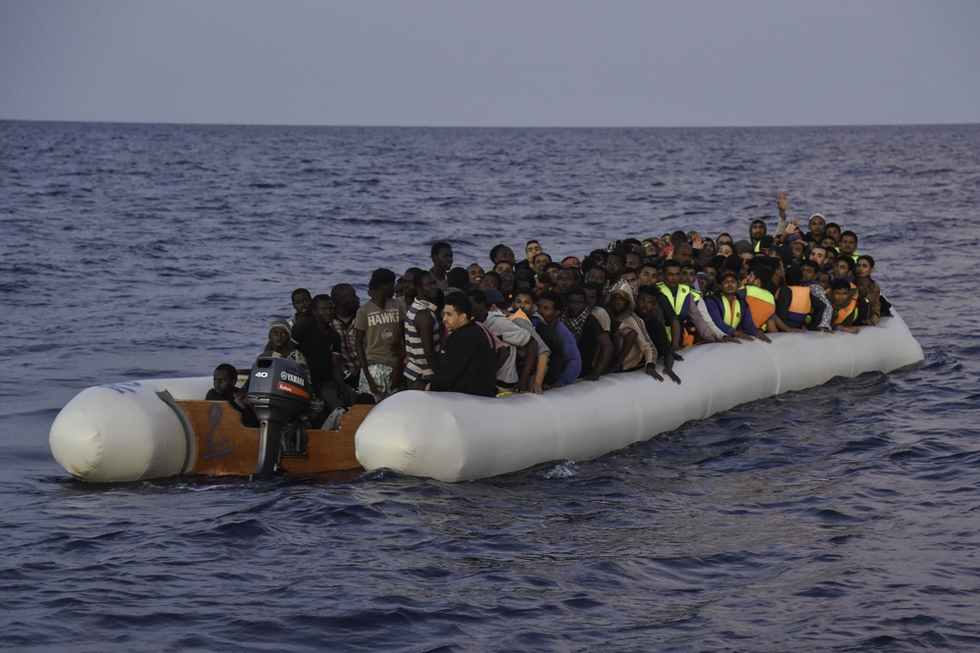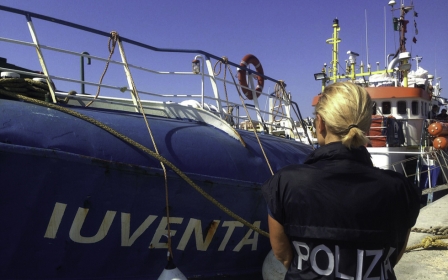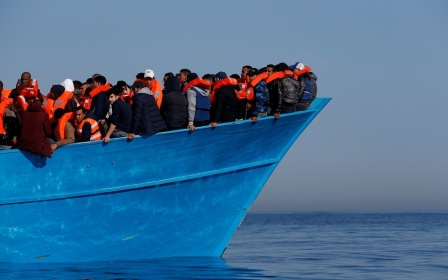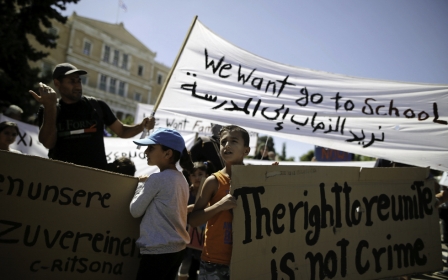'High-quality refugee boats' for sale on Chinese website, despite EU criticism

Chinese manufacturers are advertising inflatable dinghies as "high-quality refugee boats" in an attempt to market them to people-smugglers in the Mediterranean, despite the EU asking China to clamp down on the practice.
The sales, carried on the website of Chinese e-commerce giant Alibaba, offer buyers a "high-quality refugee boat" for between $800-$1,100. According to the web page, the boats, constructed out of plywood, aluminium and PVC, can carry 25-30 passengers.
Life-jackets are considered "optional equipment".
A medical charity that operates migrant search and rescue operations in the Mediterranean told MEE that the sales were “highly irresponsible” and were putting the lives of people crossing the Mediterranean at risk.
But Annemarie Loof, who oversees the search and rescue work of charity Doctors Without Borders (MSF), said that simply stopping the sales of dinghies was not enough and said that as long as there was a lack of safe, legal routes for migrants and refugees the problem would continue.
“It is highly irresponsible that these kinds of inflatable dinghies are actually being advertised as quality refugee boats,” said Loof.
“Unscrupulous smuggling networks are only focused on maximising their profits, and the use of these types of unseaworthy vessels has only made the crossing by sea even deadlier."
'Symptom of a wider problem'
It's not the first time Alibaba has been caught out selling such boats. Another web page which has since been removed from the site advertised "inflatable rescue refugee boats" as being "not likely to sink".
“The boat has good capacity of anti-sinking,” the advert read. “When the boat is in max loaded condition (even the boat is filled fully with water), the boat still can be float on the water.”
A leaked report from Operation Sophia, the EU's mission to crack down on illegal people-smuggling routes across the Mediterranean, confirmed that Libya-based smugglers were buying Chinese-made inflatable boats and shipping them to North Africa via Malta and Turkey.
In one case, Maltese customs officials intercepted a shipment of 20 packaged rubber boats bound for Misrata, on the Libyan coast, but were forced to release the cargo as there were no legal grounds to hold it.
Last month, the EU took measures to restrict such sales as part of its steps to disrupt the business model of people-smugglers by imposing restrictions on the export and supply of such boats to Libya.
EU officials have called on China to do more to help fight people-smuggling in the Mediterranean.
"The rubber boats used by the smuggler networks in the Mediterranean are fabricated somewhere in China,” Dimitris Avramopoulos, EU commissioner for migration, said on a visit to Beijing in May.
In a statement sent to MEE, a spokesperson for Avramopoulos said that he had “requested the support of the Chinese authorities to better fight against migrant-smuggling in the Mediterranean, having in mind that a certain number of rubber boats used by the smugglers are produced by firms operating in China”.
However, Loof said that simply stopping these sales was not the answer.
“The sale of these dinghies are just the symptom of a wider problem,” she said, “which is the lack of safe and legal channels for people who are in search of safety or a better life.
“Until safer alternatives are provided, people will continue to take these dangerous routes and risk their lives.”
New MEE newsletter: Jerusalem Dispatch
Sign up to get the latest insights and analysis on Israel-Palestine, alongside Turkey Unpacked and other MEE newsletters
Middle East Eye delivers independent and unrivalled coverage and analysis of the Middle East, North Africa and beyond. To learn more about republishing this content and the associated fees, please fill out this form. More about MEE can be found here.





